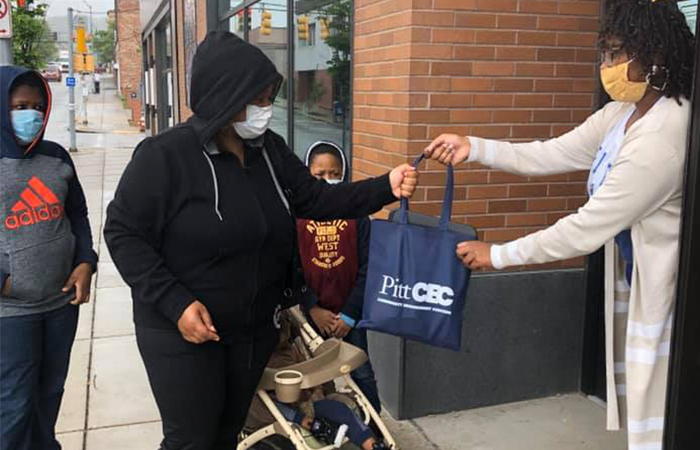July 2, 2020 | NEXT Pittsburgh | Read the full story

By Presley Gillespie, president of Neighborhood Allies
As robotic companies, self-driving cars, AI and coding epicenters sprouted across the city of Pittsburgh, it mostly happened without the involvement of our Black community.
Apartments were torn down and rents skyrocketed. Wages for white folks grew, while black families’ experienced a 10% decline. Pittsburgh’s reputation as a manufacturing city faded as automation replaced factory workers. And across the region, it became essential to integrate technology into all our lives and operations.
That was before COVID-19.

Technology has permeated every facet of our lives — our jobs, our social networks, our economy, and more. Since March, it has become the lifeline to society. This makes the reality of our digital divide absolutely indefensible.
Many Pittsburghers cannot thrive because they do not have the digital skills necessary to find a job that pays a living wage, get access to the right technology, or even the ability to log onto the internet while at home.
COVID-19 has only widened this already deep rift.
In order to level the playing field, Neighborhood Allies began 2020 with a bold initiative to develop two brick-and- mortar Digital Inclusion Centers in Homewood and the Hill District, with pop-up sites and free in-person and remote programming available to all.
When COVID-19 shut down Pennsylvania, our Digital Inclusion Team built a Pittsburgh-wide coalition of universities, companies, foundations and nonprofits to get thousands of devices in people’s hands.
In our first swing at the estimated 75,000 households in Allegheny County without devices and 10,000 disconnected PPS students, we raised nearly $400,000 and distributed 1,200 refurbished laptops to families in need across the city.
We equipped PPS to get every last disconnected PPS household online with a year of high-speed internet — because 17.6% of households in Allegheny County do not have internet access.
And with the knowledge that over 82% of middle-income jobs require digital literacy and usage, we are creating remote digital skills and STEM curriculum with partners at the University of Pittsburgh, CCAC, Homewood Children’s Village and the Hill CDC. From September, count on us to be a resource that will complement traditional schooling and workforce development so folks can get up to speed with the digital future of work.
These three areas of impact — hardware access, digital connectivity, and education and empowerment — make up the three pillars of digital inclusion.
We need to address all of them in order to close this gap in access that is so prevalent in our communities. As we continue to tackle Pittsburgh’s digital divide, we need to come together as a region to throw everything we have at the challenge before us.
Find out more at https://beyondthelaptops.org/get-involved/.
Your ally,
Presley Gillespie,
President, Neighborhood Allies

